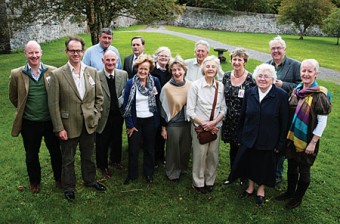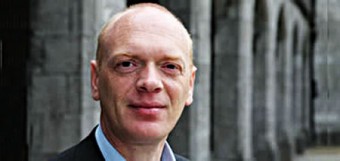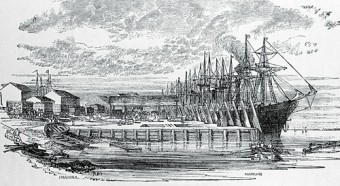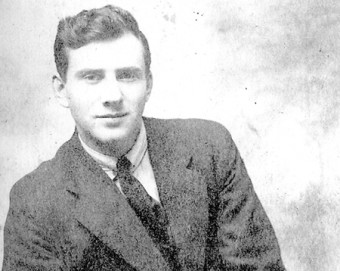Search Results for 'House of Commons'
21 results found.
Budget week and EU warnings make life outside of Ireland worth considering for many
Things are heating up - not necessarily in terms of the upcoming festive season - or indeed in regard to outside temperatures, but just in a general sense. After the historic events of the week - the lacklustre Taoiseach State-of-the-nation address on Sunday followed by the half-and-half ‘slash and burn’ budget over Monday and Tuesday, a new force is building. It is not a positive force. The momentous proceedings of the past week put paid to any chance of positive people-power being harnessed. If anything, the spirit is sapped.
Civil War - British gunboat sent to Clifden

June 22 1922 Galwegians looked on with alarm as anti-Treaty forces, who had taken up positions in a number of buildings in the city, including the former RIC station at Eglinton Street, were preparing for a fight. That morning Michael Brennan, IRA commander of the only major pro-Treaty unit in the west, under orders from Richard Mulcahy Free State Army commander, entered the city with a large well armed force. They immediately secured the county-jail, the courthouse, and the railway hotel. Having seen the end of the War of Independence, and having voted by a substantial majority just weeks before for parties supporting the Treaty with Britain, this was a tragic state of affairs. Galwegians feared an all out pitched battle, followed by the horrors of the previous years of struggle. This time, however, the enemy was not Britain, but former friends and comrades.
Has Sir William Gregory been brought in from the cold?

Sir William Gregory of Coole, Co Galway, and the husband of Lady Augusta in his later years, has been vilified unfairly by historians and commentators, said Brian Walker, professor of Irish Studies at Queen’s University last weekend. As the member of parliament who introduced the so called ‘Gregory clause’ as the Great Famine raged through the land, he did so for humane motives; but it was exploited by some ruthless landlords to clear their land.
Humanity Dick’s last battle
Humanity Dick Martin’s daughter, Harriet Letitia, wasn’t the only one to write about her father’s victory at the notorious Galway election of 1826. It was such a blatant hijack of votes, a total fraud, and swindle, that it outraged the investigating committee from the House of Commons some months later. But Martin was desperate. Despite his enormous estates, consisting of 196,540 acres, virtually the entire territory of Connemara stretching westwards from Galway, he was deeply in debt. He was a useless landlord in the sense that his collection of rents was haphazard and irregular. He had a generous heart. He did not press his tenants for money.
NUIG professor to reveal groundbreaking research on ageing

A leading local university professor, who has conducted groundbreaking research on ageing, will share his findings with the public at a seminar to be held in the city later this month.
Forty years on.... Galway Advertiser motoring better than ever
It is 40 years since Ronnie O'Gorman returned home from London to Galway with a plan to publish Ireland's first free newspaper. But not even he could have imagined the massive success it has become today.
Steam Wharf, Galway, c1850

A report on Galway Bay and Harbour published by the House of Commons in 1838 makes for interesting reading.
Mark Thomas’ manifesto for
OVER THE past two decades Londoner Mark Thomas has been a comedian, television presenter, writer, social-commentator, political activist, and self-confessed pain in the arse. He currently holds the Guinness World Record for most political demonstrations in 24 hours.
Joe Togher, a Galway volunteer

Joe Togher was born in Headford on September 8, 1898. His father was a shopkeeper and his mother was from Carlow, and they had three more sons and a daughter. His father died when he was very young, so in 1910 his mother moved the family into Francis Street in Galway where she opened a small hotel (see photograph) to support them. She was very busy with the business so it was Joe’s sister Nell who looked after him. He went to ‘The Mon’ where a nationalistic Brother Leo was a major influence. Joe was a good oarsman, a champion sculler.

